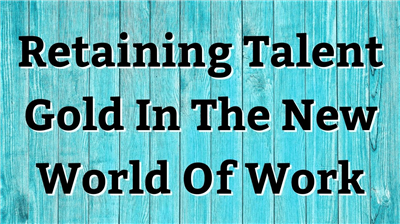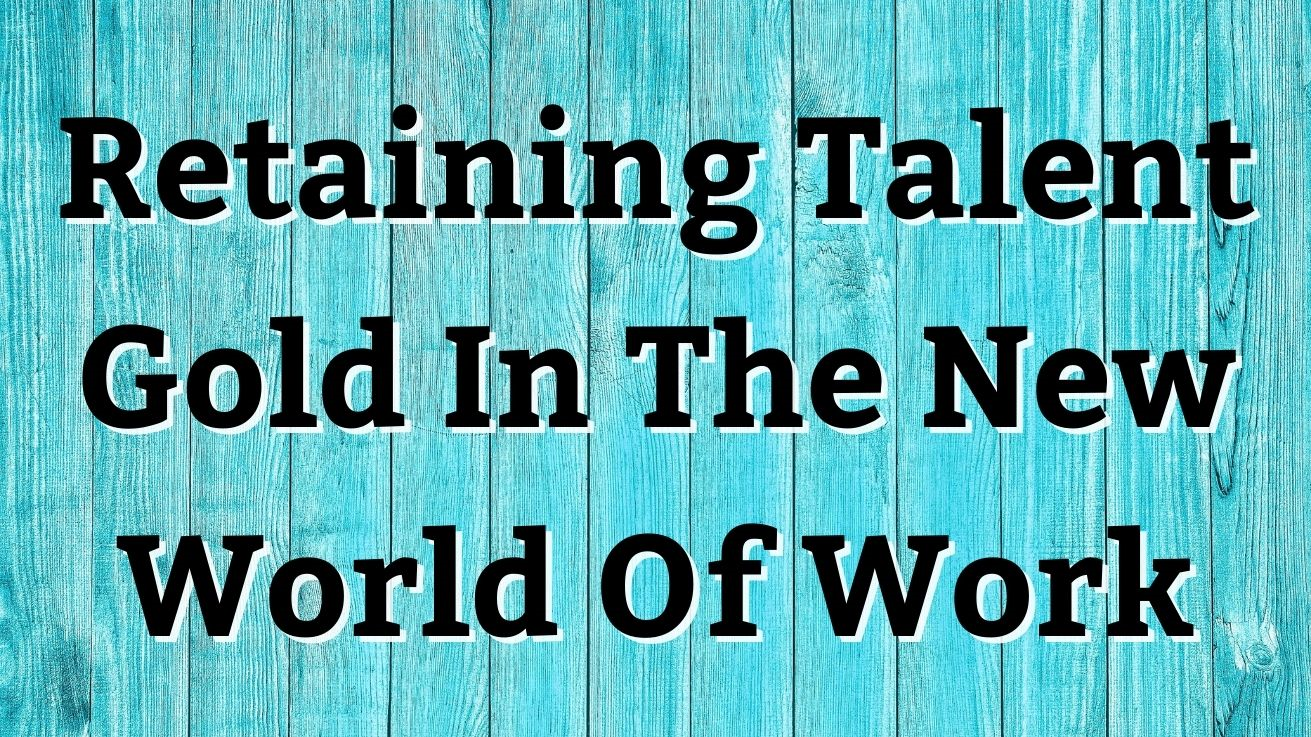Retaining Talent Gold In The New World Of Work
Published: Thursday, December 3, 2020
Employment is no longer a simple exchange of money for skills. These days, not only employers but employees expect much more from this exchange of value, and here’s what organisations must do to attract and retain engaged talent in the future of work.

Just when leading organisations thought they had the talent retention challenge understood and mapped, Covid-19 came along to undermine best practice and change the game. A new white paper from United Minds, Weber Shandwick’s specialist organisational transformation consultancy, points out that the way we work has changed forever, and there will be no return to ‘normal’.
For one thing, working from home is here to stay. A recent study from United Minds and KRC Research reveals that over two thirds of those surveyed consider themselves as productive at home as they are in the office, and that 74 per cent would like to continue working from home after the pandemic has run its course. Many are considering even more substantial changes, such as relocating from cities to more rural locations. New work habits have formed.
In just a few months, many elements of the value proposition that employers have relied on for so long have been significantly devalued. The very definition of employment has changed: Employment is no longer a simple transaction where money is exchanged for skills, capabilities and experience. Now, it is an exchange of value between organisations and talent. Employers don’t just want their staff to be present – they want them to be engaged, productive, empathetic to customers and colleagues, innovative, creative and display a number of other attributes; and free Friday afternoon drinks, or even that cool new staff canteen will do little to support this.
Going into the future, two key factors will determine an organisation’s employee experience and their ability to attract and retain talent and keep the workforce engaged: empathetic leadership and radical flexibility.
I. Empathetic leadership
In a world where employees are not only navigating the effects of the pandemic but also the economic, political and social justice crises caused or amplified by it, there is a premium on genuine, empathetic leadership. A few years ago, Google analysed the leadership factors that differentiated high-performing teams from the rest and eight attributes emerged:
∙ Be a good coach.
∙ Empower the team and do not micromanage.
∙ Express interest/concern for team members’ success and personal well-being.
∙ Be very productive/results oriented.
∙ Be a good communicator – listen and share information.
∙ Help the team with career development.
∙ Have a clear vision/strategy for the team.
∙ Have the important technical skills that help advise the team.
These qualities are more critical now than ever before. Any leader who displays these eight attributes will be creating an employee experience that will drive better business performance and enable organisations to attract and retain the talent they will need to survive the current crisis.
II. Embrace radical flexibility
Now that working from home has become the default, employers and employees have benefited from the partial flexibility it has allowed. Many organisations, however, are beginning to face the challenge of reducing burnout in a workforce trying to work flexibly at home within a contractual framework that is designed for more traditional ways of working.
To combat the toll that the new ways of working have had on the mental health of employees, the next frontier of flexible working is to give people much more control over their time. The traditional model of working 9am to 5pm, 40 hours a week, with a fixed number of holidays, no longer fits with the experience employees are looking for.
The discussion about flexible work in the future will be driven by trusting employees to deliver outcomes rather than focusing on their inputs (time and location, primarily). Introducing activations such as core working hours (e.g. 10am-3pm, with other hours worked at the employee’s discretion), shorter working weeks, increased holiday allowances and workplace closures, can all help people to make the new ways of working more compatible with their lives.
The future of work is now. Employers expected employees to adapt, almost overnight, to a different way of working. Now employers, too, must adapt and look to the future to keep their current and prospective workforce engaged.
1 Laszlo Bock, Work Rules! Insights from Google That Will Transform How You Live and Lead, (New York, Twelve Hachette Book Group, 2015), pg. 195
By Ipelegeng (Ipi) Thibedi, CEO of Weber Shandwick Africa
